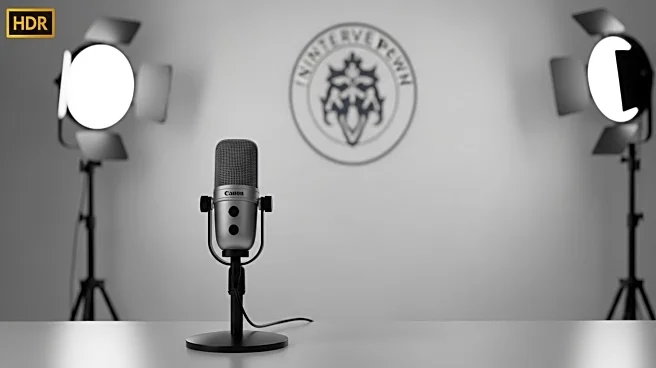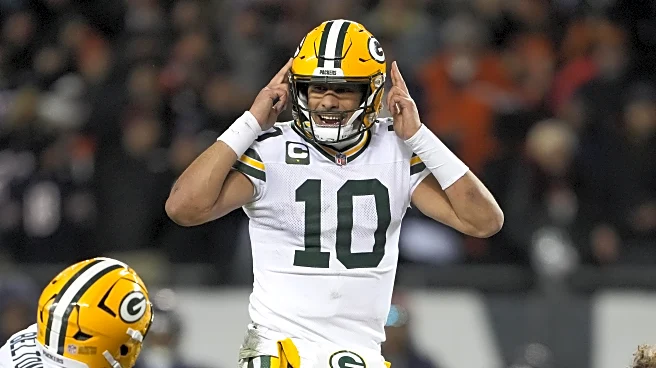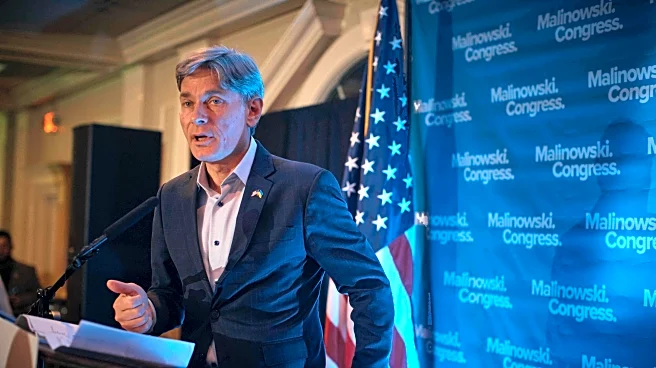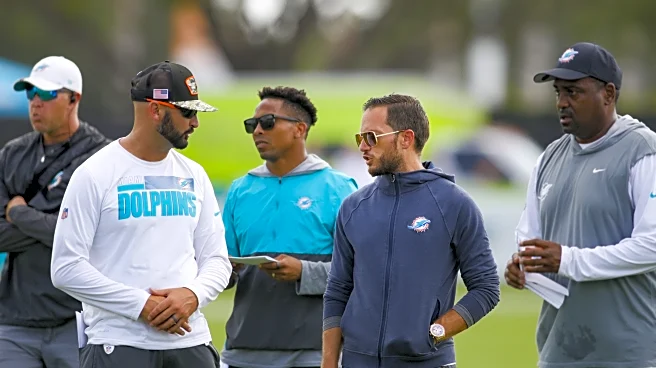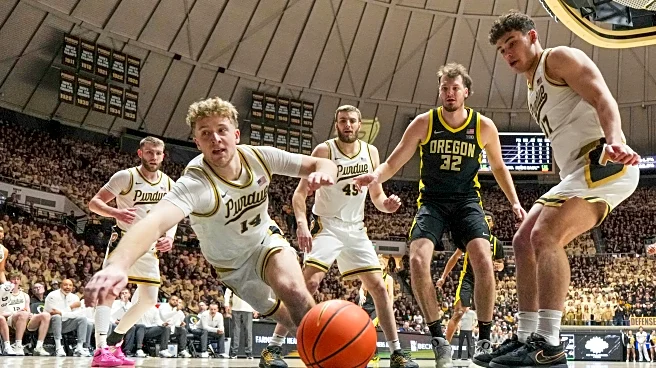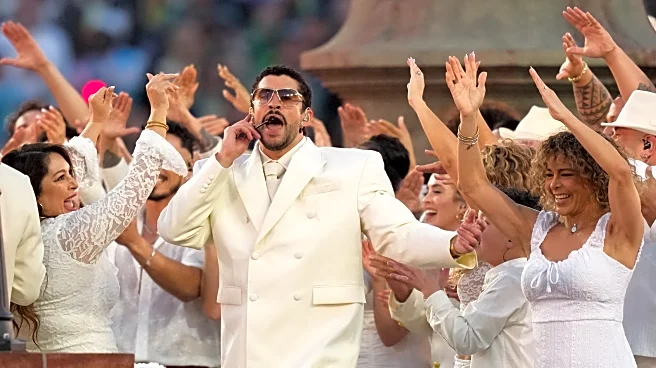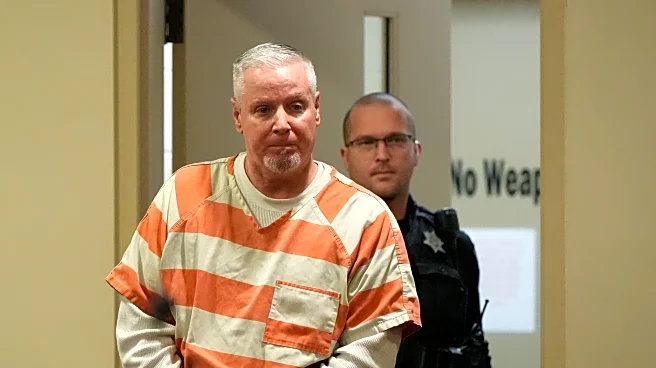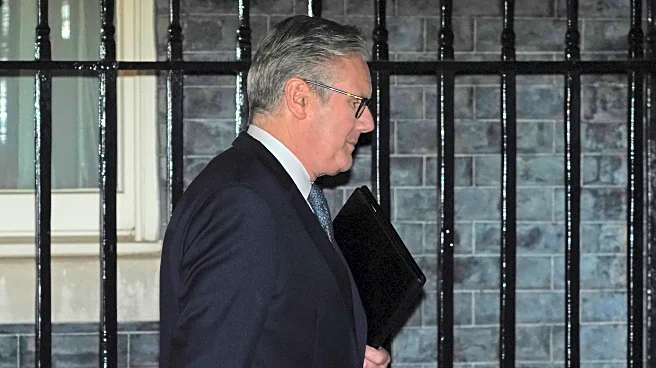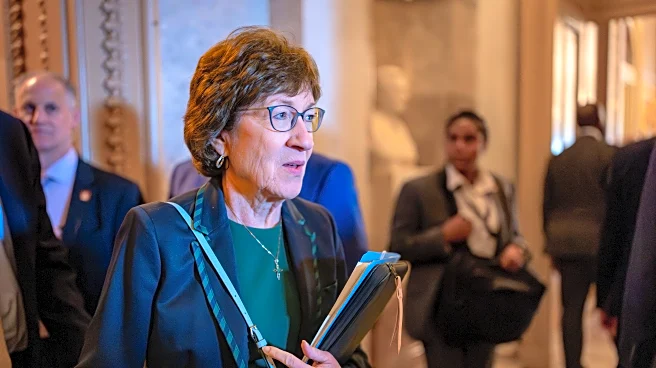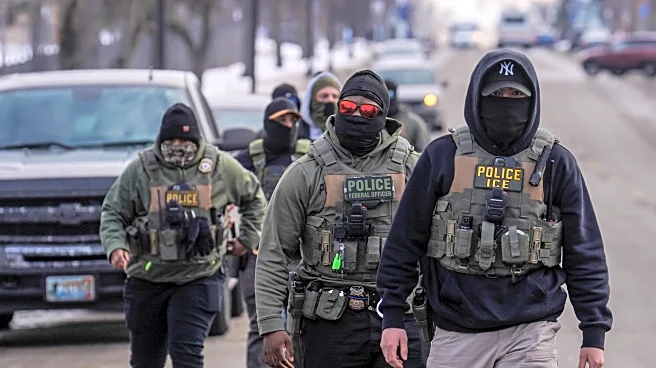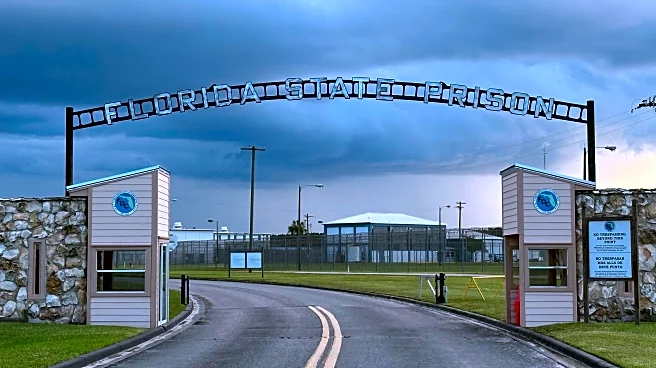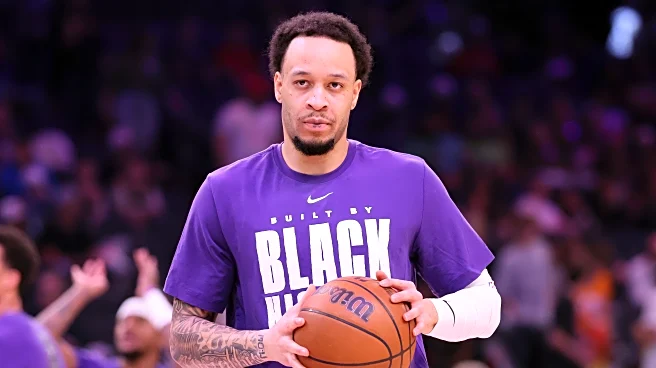What is the story about?
What's Happening?
CBS News has announced a change in its interview policy for the Sunday public affairs show 'Face the Nation' after facing criticism over edits made to an interview with Homeland Security Secretary Kristi Noem. The network will now only air live or live-to-tape interviews, ensuring that the television audience sees the full, unedited content. This decision comes after Noem accused CBS of selectively editing her interview to omit her comments about Kilmar Abrego Garcia, a Salvadoran man involved in a deportation dispute. CBS had cut 25 seconds from the interview, which included Noem listing crimes Garcia is accused of. The Department of Homeland Security criticized the edit as selective, prompting CBS to release the full interview online.
Why It's Important?
The policy change by CBS News highlights the ongoing tension between media outlets and political figures over the portrayal of interviews and the accuracy of reporting. This move is significant as it reflects a broader trend in media towards greater transparency, amid declining public trust in news organizations. By committing to unedited broadcasts, CBS aims to address concerns about bias and manipulation in news coverage. This change could influence how other networks handle similar situations, potentially leading to a shift in industry standards. The decision also underscores the impact of political pressure on media practices, as networks navigate the challenges of maintaining journalistic integrity while responding to criticism from powerful figures.
What's Next?
CBS News is actively seeking an ombudsman to handle complaints like those arising from the Noem interview. This role is expected to play a crucial part in addressing future controversies and ensuring adherence to the new policy. Additionally, the network's decision may prompt other media organizations to reevaluate their own interview practices, especially in the context of high-profile political figures. As the media landscape continues to evolve, the emphasis on transparency and accountability is likely to become more pronounced, potentially leading to further policy changes across the industry.
Beyond the Headlines
The controversy surrounding the Noem interview and CBS's response also raises questions about the balance between editorial discretion and the need for transparency. While the new policy aims to prevent selective editing, it also places a greater responsibility on interviewers to fact-check and challenge statements in real-time. This shift could lead to more dynamic and potentially contentious interviews, as moderators navigate the complexities of live broadcasting. Furthermore, the situation highlights the ethical considerations involved in media coverage, particularly when dealing with sensitive topics such as immigration and public safety.
